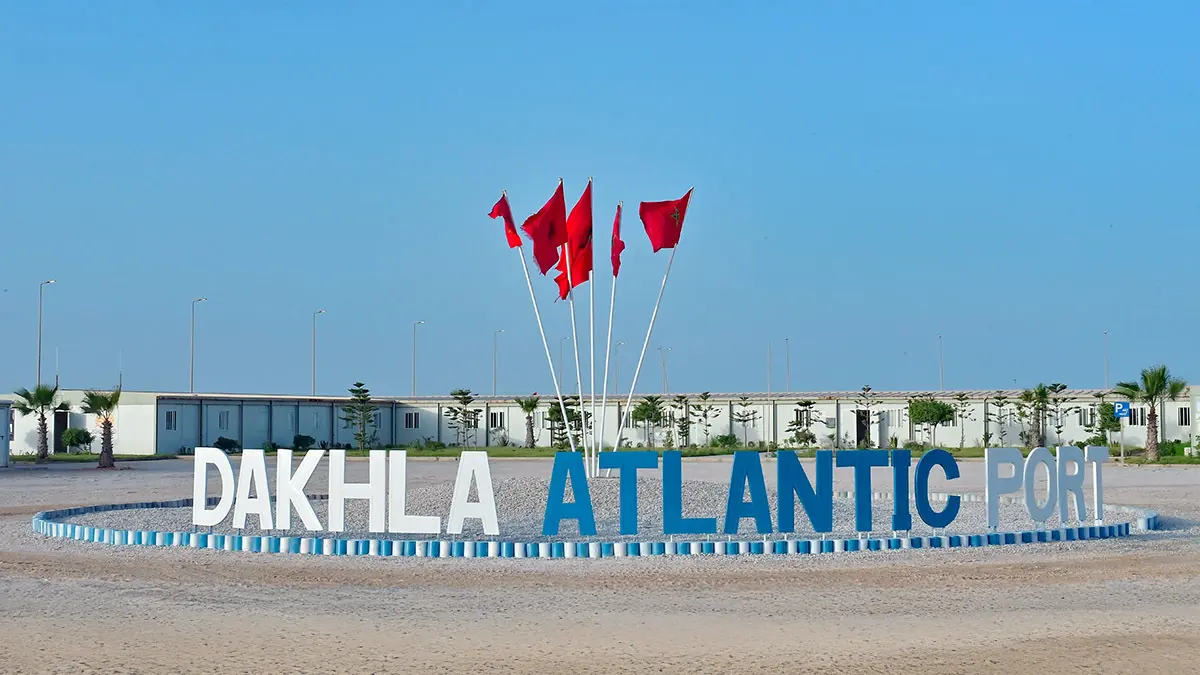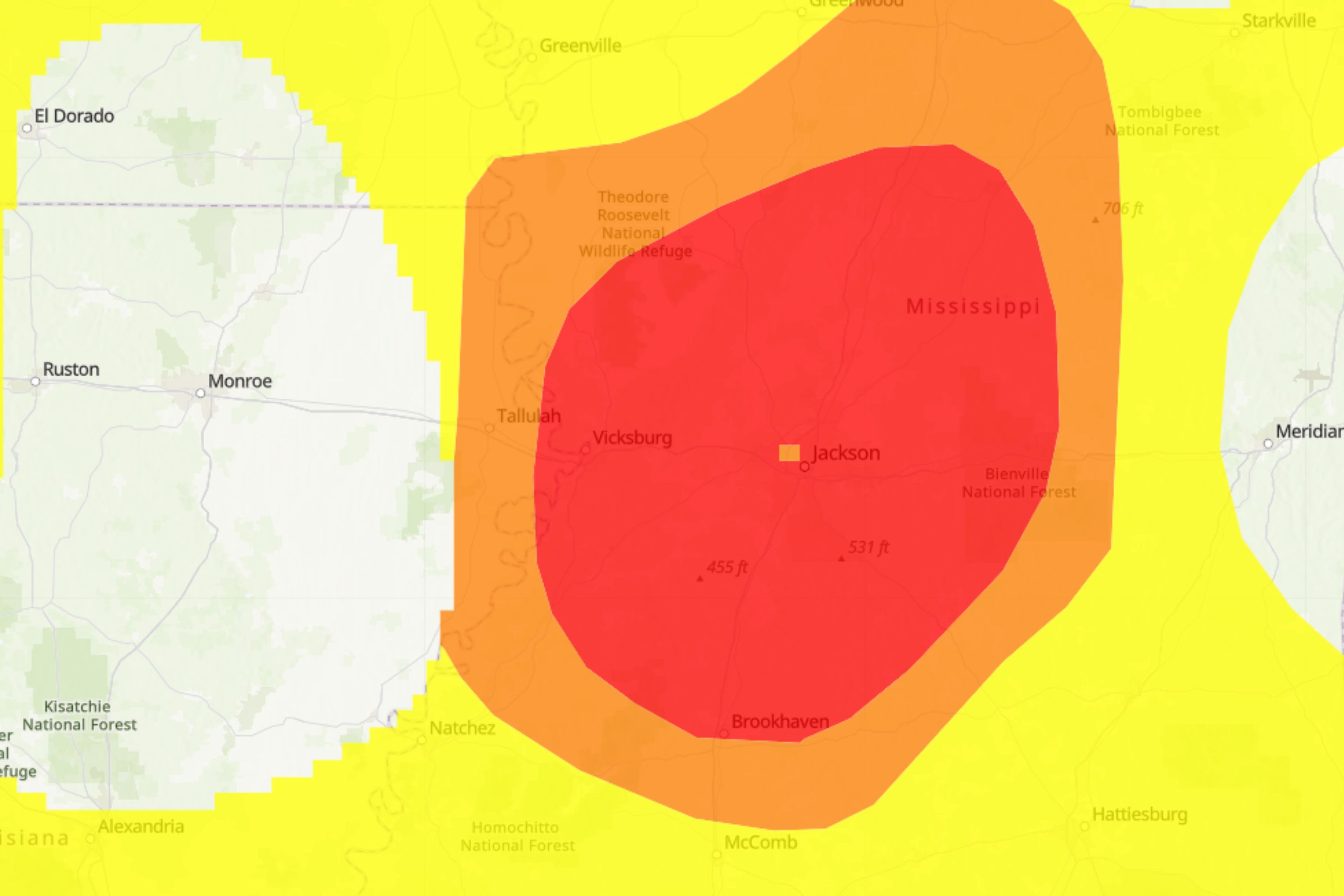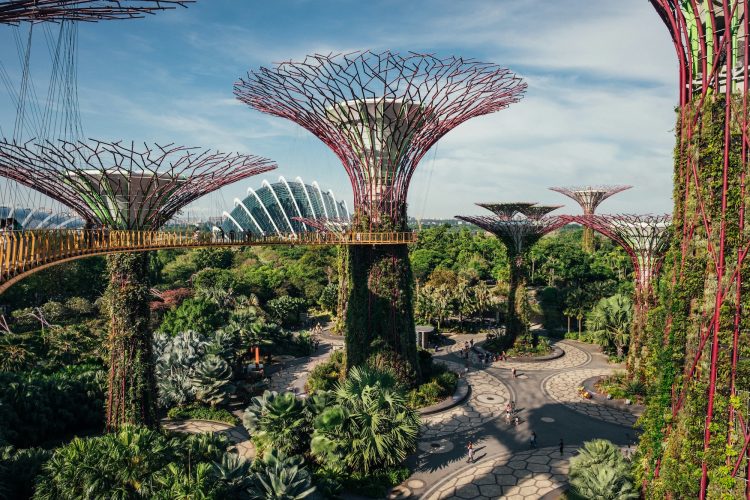Canary Islands’ Commitment to Dakhla Port Compounds Polisario’s Credibility Crisis – Morocco World News

Report on the “Port Dakhla 2025” Commercial Mission and its Alignment with Sustainable Development Goals
Introduction: Fostering International Partnerships for Sustainable Growth
A commercial mission, titled “Port Dakhla 2025,” was organized from November 29 to December 2 by Proexca, a public entity of the Canary Islands government, in partnership with the Canary Federation of Port Companies (Fedeport). This initiative reflects a strategic alignment between Spanish regional administrations and Morocco, focusing on economic integration and sustainable development. The mission’s primary objective is to facilitate investment by Canary Islands companies in the Dakhla Atlantic Port, a cornerstone project for regional development that directly supports the achievement of multiple Sustainable Development Goals (SDGs).
The Dakhla Atlantic Port: A Catalyst for SDG 9 and SDG 8
The Dakhla Atlantic Port is a major infrastructure project, valued at €1.3 billion, designed to become a critical logistics hub connecting Africa, Europe, and America. This development is a significant contribution to several SDGs:
- SDG 9 (Industry, Innovation, and Infrastructure): The port represents the development of resilient, sustainable, and high-quality infrastructure designed to support economic development and regional integration.
- SDG 8 (Decent Work and Economic Growth): The project is a major driver of economic growth for the Dakhla-Oued Eddahab region. It is projected to create over 2,500 direct and indirect jobs during its construction phase alone, promoting sustained and inclusive economic growth.
- Operational Capacity: The port is expected to process up to 35 million tons of cargo annually, including facilities for over 1 million containers, further stimulating trade and economic activity in line with SDG 8.
Strategic Investment Opportunities Aligned with Global Goals
The mission identifies numerous investment opportunities that are intrinsically linked to specific Sustainable Development Goals, encouraging private sector participation in achieving a sustainable future.
- Logistics and Transport Services: Opportunities in cargo management and international connectivity directly support SDG 9 by building resilient infrastructure and fostering global trade.
- Port Technology: Investment in digitalization, automation, and intelligent port management systems promotes innovation, a key target of SDG 9.
- Renewable Energy and Sustainability: The focus on developing efficient and sustainable port energy systems contributes to SDG 7 (Affordable and Clean Energy) and SDG 11 (Sustainable Cities and Communities).
- Blue Economy: Prospects in responsible fishing, aquaculture, and maritime tourism advance SDG 14 (Life Below Water) by promoting the sustainable use of marine resources.
- Circular Economy: Initiatives in waste management, recycling, and sustainable solutions align with SDG 12 (Responsible Consumption and Production).
Mission Framework and Contribution to SDG 17
The mission’s program is structured to maximize collaboration and ensure sustainable outcomes, embodying the principles of SDG 17 (Partnerships for the Goals).
- Institutional and Business Meetings: The agenda includes sessions with regional government representatives, port authorities, and business-to-business meetings to foster robust public-private and international partnerships.
- South-South Cooperation: The Dakhla Port project is positioned as a gateway to Africa, enhancing South-South cooperation and providing secure access for West Africa and Sahel countries, thereby strengthening global partnerships for sustainable development.
- Knowledge Sharing: Informative sessions and technical visits to port facilities are designed to share expertise and present collaboration potential, reinforcing the partnership-based approach to development.
Conclusion: A Model for Integrated Sustainable Development
The “Port Dakhla 2025” initiative and the development of the Dakhla Atlantic Port serve as a comprehensive framework for achieving sustainable development. By integrating economic objectives with environmental and social goals, the project advances key SDGs, including those related to infrastructure, economic growth, clean energy, and international partnerships. This strategic cooperation between the Canary Islands and Morocco provides a tangible model for leveraging large-scale infrastructure projects to foster regional integration and sustainable prosperity.
Analysis of Sustainable Development Goals in the Article
1. Which SDGs are addressed or connected to the issues highlighted in the article?
The article on the Dakhla Port development highlights several Sustainable Development Goals (SDGs) through its focus on infrastructure, economic growth, international partnerships, and environmental considerations. The following SDGs are directly addressed or connected:
- SDG 7: Affordable and Clean Energy – The article explicitly mentions opportunities in “Renewable energy and sustainability solutions focus on efficient and sustainable port energy systems.”
- SDG 8: Decent Work and Economic Growth – The project is a major driver of economic activity, aiming to create jobs, encourage investment, and foster business expansion, which are central themes of this goal.
- SDG 9: Industry, Innovation, and Infrastructure – The core of the article is the development of a major piece of infrastructure, the Dakhla Atlantic Port, which is designed to be a modern logistics hub incorporating technology and innovation.
- SDG 11: Sustainable Cities and Communities – The port is presented as a key component of Morocco’s “southern development strategy” and is expected to have a significant positive impact on the “socioeconomic development in the Dakhla-Oued Eddahab region.”
- SDG 12: Responsible Consumption and Production – The mention of “Circular economy initiatives address waste management, recycling and sustainable solutions” directly connects the project to sustainable production patterns.
- SDG 14: Life Below Water – The project identifies “Blue economy prospects include responsible fishing, aquaculture and maritime tourism,” which relates to the sustainable use of marine resources for economic benefit.
- SDG 17: Partnerships for the Goals – The entire initiative described is a partnership between a public company from the Canary Islands (Proexca), a federation of port companies (Fedeport), and Moroccan entities to achieve shared economic and development goals.
2. What specific targets under those SDGs can be identified based on the article’s content?
Based on the details provided, several specific SDG targets can be identified:
- Target 8.2: Achieve higher levels of economic productivity through diversification, technological upgrading and innovation.
- Explanation: The project aims to diversify the regional economy by creating a logistics nexus and fostering new industries in sectors like port technology, ship repair, and the blue economy.
- Target 9.1: Develop quality, reliable, sustainable and resilient infrastructure… to support economic development and human well-being.
- Explanation: The Dakhla Atlantic Port is a €1.3 billion logistics infrastructure project explicitly designed to connect Africa, Europe, and America, thereby supporting regional and international economic development.
- Target 9.4: Upgrade infrastructure and retrofit industries to make them sustainable… with greater adoption of clean and environmentally sound technologies.
- Explanation: The article highlights opportunities in “digitalization, automation and intelligent port management systems” and “renewable energy and sustainability solutions,” indicating a focus on modern, sustainable infrastructure.
- Target 11.a: Support positive economic, social and environmental links between urban, peri-urban and rural areas by strengthening national and regional development planning.
- Explanation: The port is a cornerstone of Morocco’s regional development strategy for the Dakhla-Oued Eddahab region, aiming to create socioeconomic benefits and integrate the area into global trade networks.
- Target 12.5: By 2030, substantially reduce waste generation through prevention, reduction, recycling and reuse.
- Explanation: The project explicitly includes “Circular economy initiatives” that focus on waste management and recycling, aligning directly with this target.
- Target 14.7: By 2030, increase the economic benefits… from the sustainable use of marine resources, including through sustainable management of fisheries, aquaculture and tourism.
- Explanation: The identification of opportunities in “responsible fishing, aquaculture and maritime tourism” as part of the “Blue economy prospects” directly supports this target.
- Target 17.17: Encourage and promote effective public, public-private and civil society partnerships.
- Explanation: The commercial mission organized by Proexca (a public company) in partnership with Fedeport (a business federation) to foster alliances between Canary and Moroccan companies is a clear example of a public-private partnership for development.
3. Are there any indicators mentioned or implied in the article that can be used to measure progress towards the identified targets?
Yes, the article contains several quantitative and qualitative indicators that can be used to measure progress:
- Financial Investment: The project is valued at €1.3 billion, serving as a key indicator of the financial resources mobilized for infrastructure development (SDG 9).
- Job Creation: The article states the project creates “more than 2,500 job opportunities during the construction phase alone,” a direct indicator for decent work (SDG 8).
- Infrastructure Capacity: Specific metrics are provided, such as the capacity to process “up to 35 million tons of cargo annually,” handle “more than 1 million containers,” and the development of a “650-hectare industrial logistics zone.” These are direct indicators of progress for Target 9.1.
- Construction Progress: The mention that construction has “exceeded 25% completion” is a tangible indicator of project implementation (SDG 9).
- Formation of Partnerships: The stated goal of the mission to “establish alliances” and “foster alliances and agreements” implies that the number and value of such partnerships formed would be a key indicator of success for Target 17.17.
- Adoption of Sustainable Practices: While not yet quantified, the development of businesses in renewable energy, circular economy, and blue economy sectors would serve as an indicator for progress towards SDGs 7, 12, and 14. The number of companies investing in these specific areas could be tracked.
4. Table of SDGs, Targets, and Indicators
| SDGs, Targets and Indicators | Targets | Indicators |
|---|---|---|
| SDG 8: Decent Work and Economic Growth | 8.2: Achieve higher levels of economic productivity through diversification, technological upgrading and innovation. | – Number of new businesses established in auxiliary services, logistics, and technology. – Creation of over 2,500 jobs during the construction phase. |
| SDG 9: Industry, Innovation, and Infrastructure | 9.1: Develop quality, reliable, sustainable and resilient infrastructure. | – Total investment value (€1.3 billion). – Annual cargo processing capacity (35 million tons). – Container handling capacity (1 million containers). – Size of the industrial logistics zone (650 hectares). – Construction completion percentage (exceeded 25%). |
| SDG 11: Sustainable Cities and Communities | 11.a: Support positive economic, social and environmental links… by strengthening national and regional development planning. | – Integration of the port into Morocco’s southern development strategy. – Socioeconomic impact on the Dakhla-Oued Eddahab region. |
| SDG 12: Responsible Consumption and Production | 12.5: Substantially reduce waste generation through prevention, reduction, recycling and reuse. | – Implementation of circular economy initiatives (waste management, recycling). |
| SDG 14: Life Below Water | 14.7: Increase the economic benefits… from the sustainable use of marine resources. | – Development of businesses in responsible fishing, aquaculture, and maritime tourism. |
| SDG 17: Partnerships for the Goals | 17.17: Encourage and promote effective public, public-private and civil society partnerships. | – Number of alliances and agreements formed between Canary and Moroccan companies. – Organization of the “Port Dakhla 2025” commercial mission by Proexca and Fedeport. |
Source: moroccoworldnews.com
What is Your Reaction?
 Like
0
Like
0
 Dislike
0
Dislike
0
 Love
0
Love
0
 Funny
0
Funny
0
 Angry
0
Angry
0
 Sad
0
Sad
0
 Wow
0
Wow
0













































































